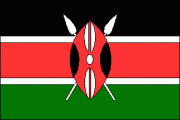Excellency Chairman,
Excellencies,
Distinguished Delegates,
Ladies and Gentlemen,
Let me start by congratulating you, Mr. Chairman and the members of the bureau on your election. Please be assured of my delegation’s full support for the entire duration of this session.
Kenya aligns itself with the statements delivered by the distinguished representative of Egypt on behalf of the Group of 77 and China and the distinguished representative of Morocco on behalf of the African Group.
As noted by the Secretary General, no country or region is immune to social and economic inequalities. This reality has paved the way for people-centred development agendas and specifically, in more recent times, the 2030 Agenda for Sustainable Development. This inclusive approach towards development is in line with Kenya’s Vision 2030 development blueprint which includes social development as one of its four main pillars.
Mr. Chairman,
Social and economic inequalities have widened even as we in Africa have made strides to ameliorate the breadth and depth of the unfortunate reality of inequality. The Copenhagen World Summit for Social Development pointed our nations towards certain specific goals, however the reality is that we continue to struggle to meet these goals. The consequences of these rising inequalities are evidenced by deprivation and continuous conflicts giving rise to unstoppable radicalization and violent extremism; a tool used to lure and mislead our vulnerable Youth.
Mr. Chairman,
The Government of Kenya continues to work tirelessly to bridge the gap in inequalities among its population by providing force enablers for social development. The Constitution of Kenya (2010) contains a comprehensive bill of rights which guarantees all Kenyans their economic, social, and cultural rights which binds the Government to provide social safety nets to the under privileged and their dependents.
Beyond social security, and as a means of sustaining inclusive growth, the Government provides social assistance through monetary and entrepreneurial incentives to uplift the welfare of Kenyans in need. This includes Government funded Cash Transfer Programmes aimed at assisting persons with severe disabilities, orphans and older persons among other vulnerable groups. To date these programmes have benefited over one million households.
Mr. Chairman,
Currently and in addition to the free maternal and post-natal health care programs, Kenya is on an irreversible path to provide Universal Health Coverage (UHC) to all her citizens as part of our Big Four Agenda. The Government also aims to increase food and nutrition security, the availability of enhanced affordable housing, and to expand the manufacturing base. This Big Four Agenda thrust is geared to benefit the whole of society and is programmed to greatly improve the circumstances of women and youth who tend to bear the brunt of societal inequities.
In a calculated and robust effort to include, empower and cushion vulnerable groups, the Government of Kenya has set aside 30% of all public tenders for works, goods and services exclusively for women, youth and persons with disabilities. Through this and other numerous affirmative action funds, the Government has been able to uplift the economic and social conditions of hundreds of thousands by promoting entrepreneurship, skills development and job creation.
Mr. Chairman,
Innovation and interconnectivity were emerging issues raised and addressed at this year’s Commission on Social Development. In line with this, Kenya is steadily perfecting the “Huduma” Programme which can be described as a ‘one stop shop’ approach in reforming service delivery in Kenya. This is done by promoting equal, easy and affordable access to services for all Kenyans. Services which previously took weeks or even months are now better managed. Kenyans can now easily access services such as issuance of national identity cards, birth certificates, registration of business names, applications of business and drivers’ licenses, among other services.
Mr. Chairman,
We in Kenya are committed to social development and the unequivocal, unwavering and unrelenting implementation of the SDGs which aim to lessen inequalities and eradicate poverty. It is our hope that in the near future, we will gather around to celebrate our success in a world where absolutely no one is left behind.
I THANK YOU.


